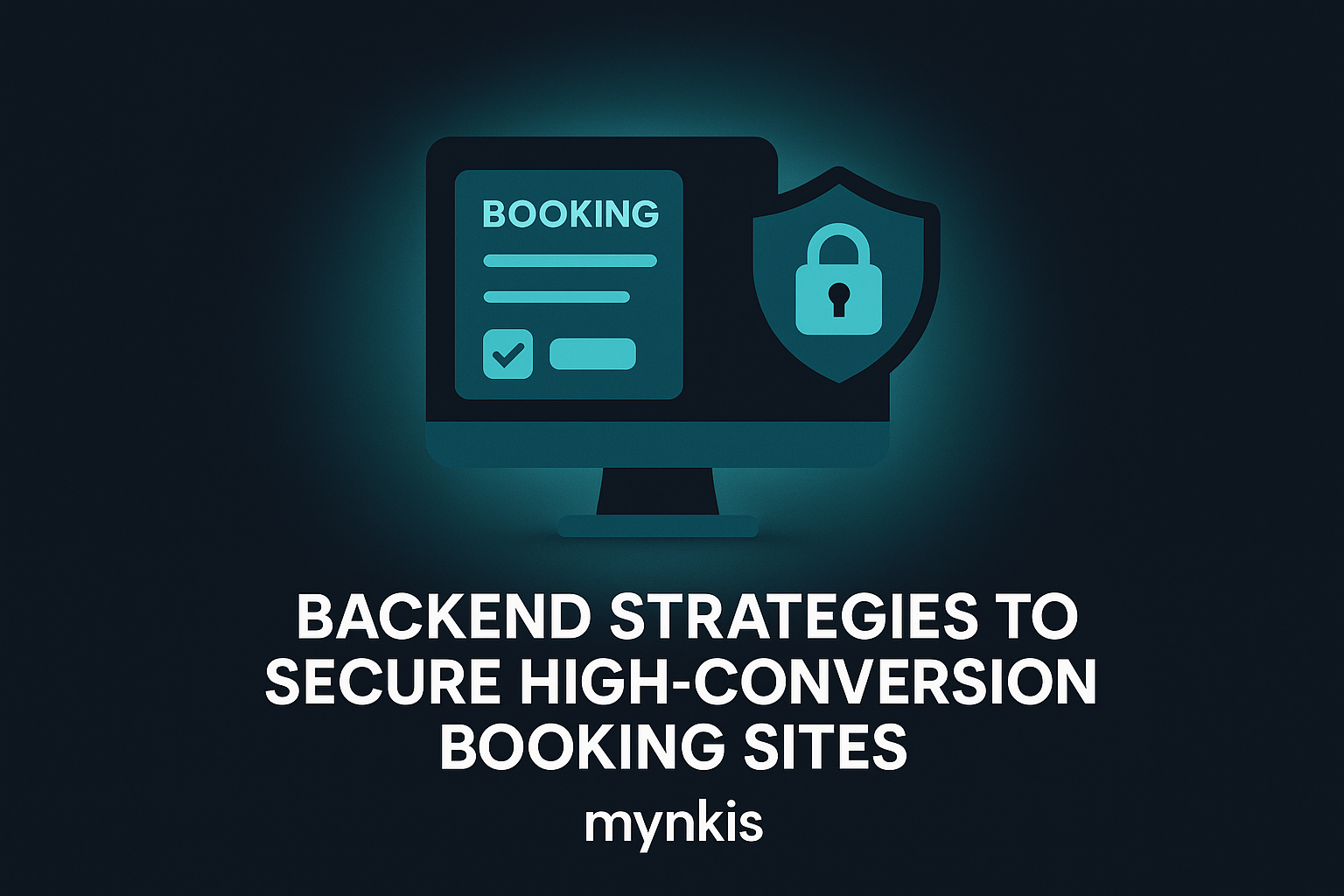Schedule a Demo
When building a booking-enabled website, security at the backend is not just a feature—it's the groundwork. This is where I see business owners sometimes overlooking the complexity involved in ensuring security without sacrificing user experience. Implementing strict security protocols ensures that personal and financial information of users is kept safe, which in turn boosts their trust and, ultimately, the conversion rates on your site.
In my work with clients developing custom software solutions, encryption stands out as non-negotiable. Use TLS (Transport Layer Security) to encrypt data between client and server, and don't stop there. Ensuring that data is encrypted not only while in transit but also when stored at rest helps to safeguard your user base from growing cyber threats. Encryption tells your clients, "Your data's safe with us," enhancing the user trust needed for higher conversions.
One aspect of secure websites I've been passionate about is exploring user authentication beyond the basics. Multi-factor authentication (MFA) has become a standard practice at successful companies I've collaborated with. Yes, it's an extra step for the user, but is it worth trading off some convenience for heightened security? With innovative solutions for seamless MFA, security enhances rather than detracts from user experience.
Staying current is more than a trend; it's essential. Regular updates and patches for backend systems and frameworks are like routine check-ups that keep everything running smoothly. To tell you the truth, in my journey helping businesses secure their digital assets, ensuring software is always up-to-date has helped fend off many vulnerabilities. What's more, conveying this proactive security stance to clients fosters greater trust and, consequently, more conversions.
The principle of least privilege is something you might not consider for your booking website until there's an issue. In my work, I've seen the negative aftermath of broad access rights. By restricting database access strictly to what's necessary, the impact of a potential security breach is minimized. This strategy reinforces the idea to users that your company takes their privacy very seriously, ideally leading to higher organic search visibility for terms related to secure booking platforms.
Logging and monitoring activities at the backend level may not be something you immediately link to user conversion or SEO, but trust me, it has its place. In creating enterprise web solutions, tracking what's happening on the backend enables quick identification and resolution of security threats. With this practice, businesses not only protect their site but can also report a clean and secure platform to search engines, which might boost visibility in organic search.
Think of your booking site as a fortress. Yes, you've erected strong walls and placed vigilant guards, but without regular inspections for weak spots or breaches, everything could come crashing down. According to industry standards from organizations like OWASP, continual vulnerability assessments are essential. Integrating these assessments not only enhances the security that your platform offers but, when communicated effectively, tells the users they're entering a place that's diligently protected, possibly attracting more organic traffic.
Think about it: a single incorrect input from a user could spiral into major security headaches. That's why, in my practice with developing custom sites, putting robust input validation at the top of the backend development list is key. This not only curbs the chance of cross-site scripting (XSS) or SQL injection attacks but contributes positively to SEO because a secure user experience often leads to lower bounce rates and longer user sessions on your booking page.
Your site's scalability might not seem like a traditional backend best practice at first glance, but let me tell you, it's more relevant than you might think. When building your booking engine, keeping scalability forefront means you're designing for growth—and this directly impacts security. As your website's user base scales, the pressures on your backend to remain secure do too. Addressing this proactively helps maintain high user experience standards which are paramount for conversions and, indirectly, supports organic search capabilities due to consistent site performance.
Drawing from the trendsetting tech energy of San Francisco, incorporating a user-centric approach in all backend security practices pushes your booking website from good to exceptional. We're not just talking about incorporating the latest security techniques but melding them with design aesthetics that speak to potential clients globally. In applying this design-meets-security methodology, business owners can feel confident that their platforms will both look good and resist threat landscapes thoroughly, engendering a stable environment for conversions and natural search growth.
The advice of seasoned backend developers in securing and optimizing websites for conversion and SEO can't be overstated. Beyond hands-on experience, reading and incorporating feedback from pioneers like the National Institute of Standards and Technology (NIST) can guide sustainable development efforts. A thoughtful approach to backend security, informed by these respected authorities, not only improves your sites actual safety measures but aligns with Google's EEAT criteria which can boost your ranking factors.
While technical SEO and savvy backend choices are fundamental, never underestimate the power of building a strong security reputation via client testimonials. Sharing positive feedback about your platforms' safety features enhances the user's perceived value. Frequent stories of secure transactions and satisfaction can organically increase search engine exposure because satisfied customers often share their positive experiences online—creating a virtuous cycle of trust, conversions, and brand advocacy.
Creating a trustworthy environment goes hand in hand with the practical implementations mentioned. Share transparently about the security measures you put in place, possibly through a Security Report or Page on your site. A security-conscious service demonstrates that your business not only strives for excellence but genuinely cares for each client's safety. Maintaining such transparency aligns well with elevating user trust, enhancing SEO metrics, and preparing your site for converting visitors into loyal customers.
